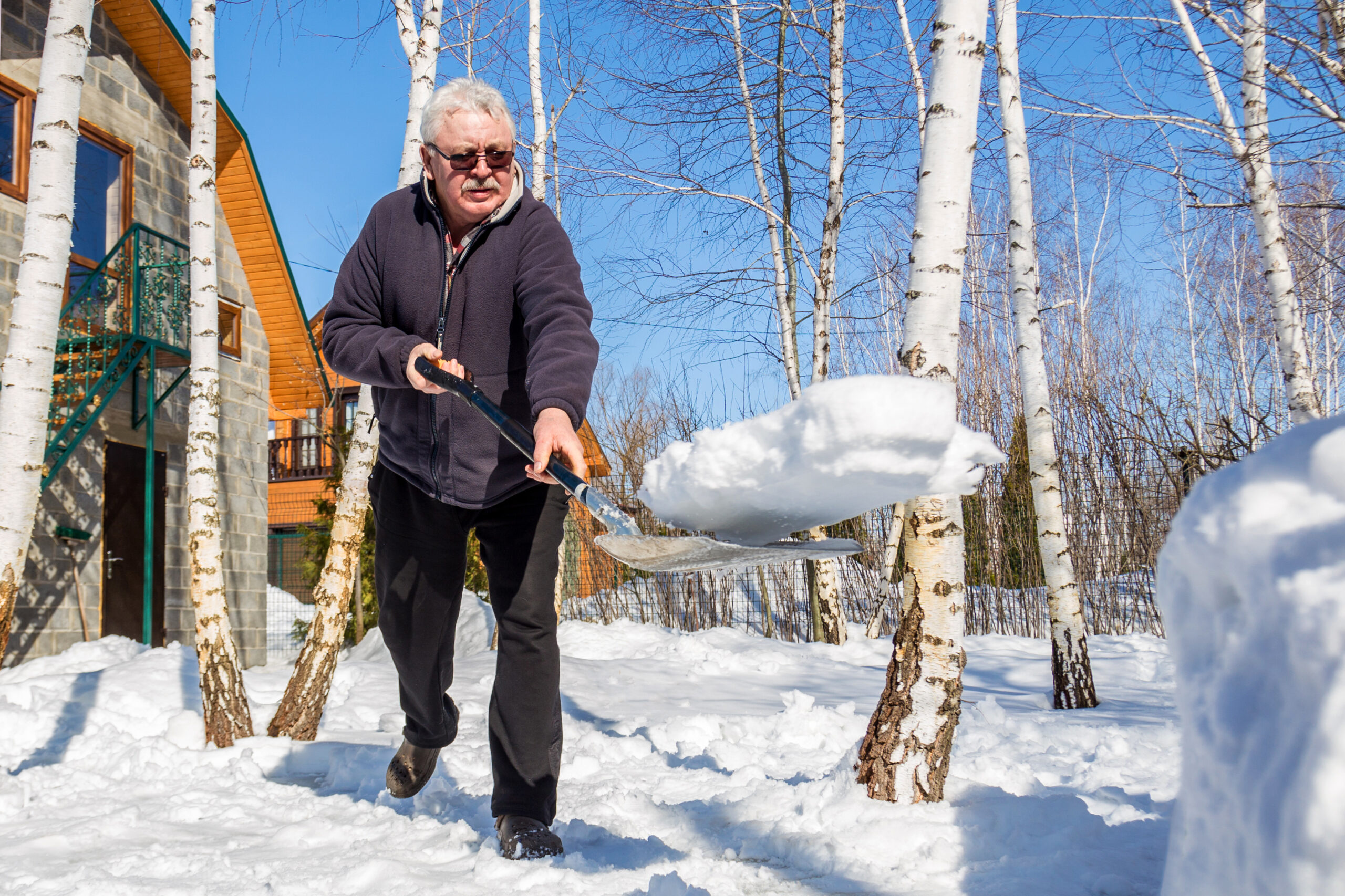
Winter can be beautiful, but the harsh weather can also make it dangerous for everyone: Navigating cold temperatures, bitter wind chills, snow, and ice is challenging. Staying warm indoors can be difficult too, and comes with its own set of issues, including safety concerns around the use of space heaters and electric blankets.
For older adults, winter poses more risks. So, it’s important to be prepared and take precautions. Consider the following winter safety tips for seniors and use them for yourself or your loved ones.
Avoid Falls
According to the National Institute on Aging (NIA), more than one in four adults over age 65 fall each year. And the risk of falling increases as we get older. Loss of muscle, vision problems, and slower reaction times can impair balance.
Here are some ways to reduce risk.
At Home
- Dry your shoes and take them off when you come in from outside.
- Install good lighting in your doorways.
- Keep entryways clear of clutter to avoid tripping.
- Wipe the tips of your cane or walker (if necessary) to dry them when you enter.
Outdoors
- Consider hiring a service to shovel snow for you.
- Keep walkways clear of snow and ice using an ice melt product or sand.
- Slow down when walking and watch where you’re stepping.
- Use railings to navigate stairs or ramps.
- Wear non-skid, rubber-soled shoes or boots with good traction.
Drive Carefully
When road conditions aren’t good, it’s not surprising that car accidents increase. In fact, according to HealthinAging.org, adults over age 65 are more likely to be in car crashes than middle-aged drivers.
To stay safe, they recommend that you:
- Bring your cell phone in case of an emergency.
- Carry an emergency kit, including blankets, a shovel, a windshield scraper, a bag of sand, food, and a flashlight.
- Choose plowed roads whenever possible and avoid icy bridges and overpasses.
- Maintain your car for winter by having the tires, windshield wipers, and antifreeze levels checked.
- Slow down and drive defensively.
Prepare for the Cold Outside
It’s easy to underestimate the severity of the weather. But temperatures and conditions can change quickly and unexpectedly, so it’s best to always be prepared. Experts at the NIA also warn us that older adults may be more susceptible to the cold.
Before heading outdoors, consider the following:
Medical conditions
- Diabetes: This disease can affect blood flow, which can impact your ability to feel warm.
- Memory or neurological problems: These conditions may impair decision-making in dangerous conditions.
- Thyroid issues: Hormonal imbalances can make it harder for the body to maintain a normal temperature.
Precautions
- Always check the forecast before you go outside.
- Carry your cell phone.
- Dress in several layers of clothing.
- Limit time outdoors.
- Remove wet clothes as soon as you come inside.
- Use hand-warmers and foot-warmers in frigid temperatures.
- Wear a waterproof winter coat, hat, scarf, gloves, and boots.
Potential risk
- Frostbite: When skin is injured due to exposure to freezing temperatures, you can lose feeling and color in the affected areas.
- Heart attack: The intense physical exertion required when shoveling snow can trigger a heart attack in older adults.
- Hypothermia: This is a medical emergency when the body’s core temperature drops below 95 degrees Fahrenheit.
Stay Warm Indoors
The NIA indicates that about 20% of injuries related to cold exposure happen in the home, and that seniors can be especially vulnerable.
To stay warm, follow these tips:
- Dress in layers, wear long underwear and use blankets.
- Drink warm beverages like tea or cocoa.
- Eat to maintain energy and increase your body temperature.
- Keep moving, such as by doing housework or exercising, to generate body heat.
- Place a tightly rolled towel in front of doors to minimize drafts.
- Set your thermostat to at least 68 degrees Fahrenheit.
- Use caution and always follow directions for space heaters and electric blankets.
To reduce stress, try meditation, yoga, or spending time in nature. Stay connected with friends and make new ones by joining groups can also help.
If you’re feeling so overwhelmed that it’s interfering with daily life, consider therapy. A licensed mental health professional can help you pinpoint the root causes of your stress, teach you relaxation techniques to calm your mind and body, help you improve your relationships, and give you a new outlook on life.
Take Care of Yourself
When the weather is severe, consider staying home. Use delivery services for groceries and prescriptions. If you have a doctor’s appointment, try to change it to a virtual visit or reschedule.
Additional smart choices include:
- Hydrate: Older adults are at a greater risk of dehydration, so drink plenty of water each day.
- Moisturize: Skin becomes drier as we age, and the dry air makes it worse, so apply lotion regularly.
- Stay connected: Have family members or a neighbor check in on you periodically.
Extreme weather requires preparation and caution. Following these winter safety tips for seniors is a smart way to approach this season.
If you would like to discuss how you or a loved one can stay safe during the winter, Traditions Health can help. Please contact us to learn more.